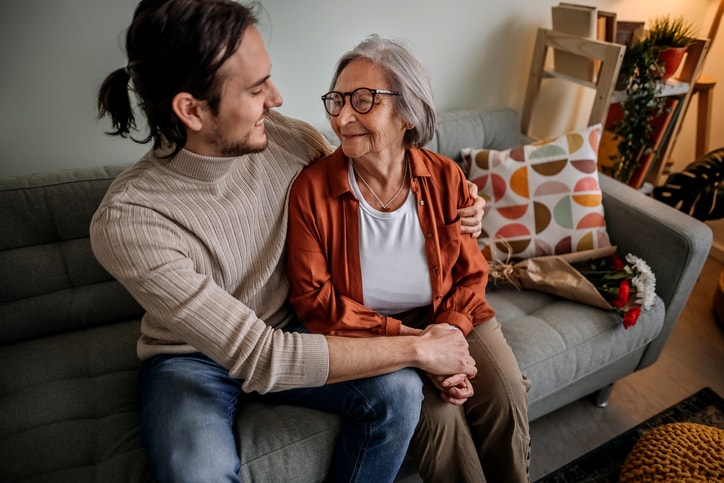Nursing homes can be an invaluable resource for time-strapped families and caregivers, or for those who are simply unable to care for their loved ones anymore. And by and large, these facilities are staffed by competent, well-intentioned employees, explains Kylie Meyer, an assistant professor at the Frances Payne Bolton School of Nursing at Case Western Reserve University in Cleveland. But, she caveats, even the best nursing homes can experience issues like understaffing and high employee turnover — factors that can sometimes lead to nursing home neglect.
Oftentimes, these issues are systemic on a national level and can be unavoidable in many nursing homes, experts say. But families and caregivers can learn to recognize the signs of nursing home negligence and take action if they suspect something is wrong, which can help thwart serious harm for residents.
Here are some examples of what neglect looks like in nursing homes, what causes negligence and how to prevent it.
What is nursing home neglect?
Though nursing home neglect can be incredibly dangerous for senior people, it’s not abuse, Tina Baxter, a board-certified geriatric nurse practitioner from Anderson, Indiana, explains. Abuse, in this context “is the emotional, physical, sexual or financial exploitation of a dependent adult,” she notes. For example, Baxter explains, abuse might include things like sexual assault, stealing from a resident’s checkbook, defaming or demeaning a resident or physically hitting or spitting on them. On the other hand, “neglect is the failure to provide adequate or effective care,” she notes. This could look like not attending “to a resident’s needs or not assisting a resident with meals.”
Find Senior care near you
While elder abuse might seem more outright dangerous than neglect (and in many ways, it can be), neglect is often much more common, Orlando, Florida-based Amy Cameron O’Rourke, a dedicated care manager and author of “The Fragile Years,” explains, which can make it subtly nefarious. A 2021 study in the journal “Cureus” found that upwards of 95% of seniors in nursing homes have experienced neglect.
What are the types of nursing home neglect?
The experts agree that nursing home negligence can vary highly depending on the situation. Here are a few examples of what it can look like.
Medical neglect
As O’Rourke explains, seniors experiencing neglect might see frequent medication errors or even repeated hospitalizations. In the previously mentioned “Cureus” study, low medication levels in blood tests were one of the key indicators of nursing home negligence in seniors.
Research from Brigham Young University (BYU) notes that repeated physical injuries and infections are also major signs.
Neglect of basic needs
This might include things like food and water, Sam Cradduck, a Phelan, California-based gerontologist, says. She notes that something as seemingly small as dirty eyeglasses could signal negligence.
Another biggie, O’Rourke points out? Dehydration. “If it is frequent and getting more severe, that’s an easy sign.”
Personal hygiene neglect
As Cradduck explains, when people age, they might forget or not have the energy or ability for simple self-care acts like bathing and brushing their teeth. The research from BYU found that cavities, gingival bleeding and dry mouth were major indicators of nursing home negligence — often because the task itself (for nursing home attendants) can be time-consuming.
Social and emotional neglect
O’Rourke worked with a nursing home resident for seven years who had a memory impairment. When that person started being combative with staff, she was quickly discharged. A few months later, O’Rourke says, the woman was diagnosed with cancer — she was acting out because of pain. Sadly, facility-initiated discharges like this can be common, according to data from the U.S. Department of Health and Human Services.
Key warning signs of nursing home neglect to watch for
While nursing home negligence can vary in severity and type, experts say there are a few common signs that can flag it quickly, including:
- Unexplained injuries or bruises. O’Rourke says that if bruising is repeated over several weeks (so it’s not a single, one-time injury), negligence might be at play — stemming from something as simple as continuously knocking their hip on a jutting bedframe or being jostled while transferring in and out of a vehicle.
- Pressure sores. As Cradduck points out, pressure sores might signal the individual is spending too much time in the same position each day.
- Poor hygiene, soiled clothing and unsanitary living conditions. According to Baxter, there might be negligence if “you observe a resident who is disheveled, in soiled clothing or adult briefs or you see trays with rotten food or pests in the room.”
- Sudden weight loss or malnutrition. As Meyer notes, if a senior person is dropping weight, that might indicate that they’re not getting one-on-one support in the dining hall, they’ve lost some motor skills (which aren’t being treated) or they’re experiencing depression.
- Continuous dehydration. Studies suggest that upwards of 60% of older adults in assisted living or nursing homes are dehydrated. If it’s unrelenting or causing hospitalizations, O’Rourke says that’s a big negligence warning sign.
- Self-induced isolation or frustration. Cradduck says that something as subtle as a senior person frequently withdrawing or sleeping more could indicate that they’re not being engaged in the facility.
The risks of nursing home neglect
The BYU study notes that neglected nursing home residents are more likely to experience pressure ulcers, depression and premature death.
Meyer says any physical or mental issue that’s ignored or left untreated can turn dangerous — say, an untreated UTI moving to a kidney infection or dementia inching toward self-harm; In fact, adults over 65 with Alzheimer’s disease or dementia are twice as likely to die by suicide than seniors without it, according to research from Yale University.
What causes nursing home neglect?
The experts resoundingly agree that understaffing and limited resources were the number-one cause of nursing home negligence. Here’s how that happens, plus two other major causes behind nursing home negligence.
Understaffing and the “bottom line”
As Cradduck explains, most people in nursing home facilities are there because they want to make a positive impact, but “sadly, the same system is very broken and too often greed takes precedence over care.” She says this comes down to staffing-to-patient ratios — there simply aren’t enough nurses hired to provide appropriate care.
High turnover rates from burnout
Cradduck says that employees can experience burnout quickly when they’re feeling overworked, which can lead to high turnover rates. “The key to providing consistent good care is having the same person provide care continuously,” O’Rourke says, adding that employees come to understand each senior person’s needs and personality nuances — say, they’re not entirely comfortable voicing their concerns or get agitated quickly under certain circumstances — with time.
Inadequate staff training
As Cradduck adds, “Unfortunately, training is often focused on tasks and how to do things,” rather than addressing “the personal side and experience.” She says this tends to create a workforce of “task-doers,” as opposed to actual care providers.
What to do if you suspect nursing home neglect
If any of the above signs feel familiar, it’s important to take action immediately to prevent major issues from developing, the experts interviewed for this piece say. Here’s what to do if you suspect a problem:
- Do a “risk assessment.” As Meyer points out, some signs of nursing home neglect (like frequent bruising), could be tied to things like a chronic disease (say, liver disease) or just a natural result of aging. Does your loved one have any known diagnoses to take into account? (Older people also tend to bruise easily, so it’s important to do a little investigative work on where the bruises are coming from.)
- Document everything. Regardless, Meyer says, if something feels off with your loved one’s health or level of care, write it down — all of it. You may need that information later on.
- Be vocal with day-to-day caretakers. You know your loved one best, so making employees aware of little personality or health nuances (say, your grandmother tends to get very quiet when she’s in pain, versus more vocal or agitated) can go a long way.
- Bring issues to higher-ups as needed. As Cradduck explains, if the issue isn’t rectified after you vocalize it, don’t hesitate to talk to administrators or other high-up people at the nursing home.
- Don’t fear contacting major protective agencies. “I always tell caregivers, ‘You can call Adult Protective Services without having proof. They’ll get the proof, don’t worry,’” Meyer says. “If this doesn’t produce results, contact your local ombudsman.” (An ombudsman is a government employee who investigates complaints in nursing homes.)
- If all else fails, consider legal action. This is where your earlier notes might come into play, Meyer says — documentation is key in proving any kind of negligence. Here’s how to hire an elder law attorney.
You might also consider the benefits of in-home care if you need to temporarily take your loved one out of a nursing facility for their safety and health, if you can afford it. Here’s a guide on sorting out those costs.
The best ways to prevent nursing home neglect
With widespread staffing issues in nursing homes, it can be difficult to step past negligence entirely. But as a caregiver or loved one of a senior person, you hold more power than you might think. Here are a few tips to avoid nursing home neglect:
- Pick a facility close to your home or work if you can. According to O’Rourke, this will allow you to easily check in on your loved one (and quickly flag any signs of negligence if they arise).
- Research sites carefully. One of the best ways to avoid nursing home negligence is to partner with the right facility, experts say. Here are some key questions to ask when touring one.
- Stay vocal about their care. Remember: You’re speaking for someone in a particularly vulnerable position. You’re vocalizing issues when they can’t.
A final word on nursing home neglect
As Meyer reiterates, remember that the vast, vast majority of people employed in nursing homes want to help residents. “By bringing a senior into a nursing home, that frees up an opportunity for you to provide more companionship while they focus on actual care,” she says. “Think of yourself as a critical part of your loved one’s care team.”
The key, Meyer says, is to stay involved and vocal. Despite the potential for neglect, abuse and overall harm in nursing home facilities, if you’re playing an active role in your loved one’s care, you can offset the risk. Just be sure to visit with your loved ones often and monitor their progress, ask the staff copious questions and bring any issues or complaints to the nursing home staff before they become problematic.





